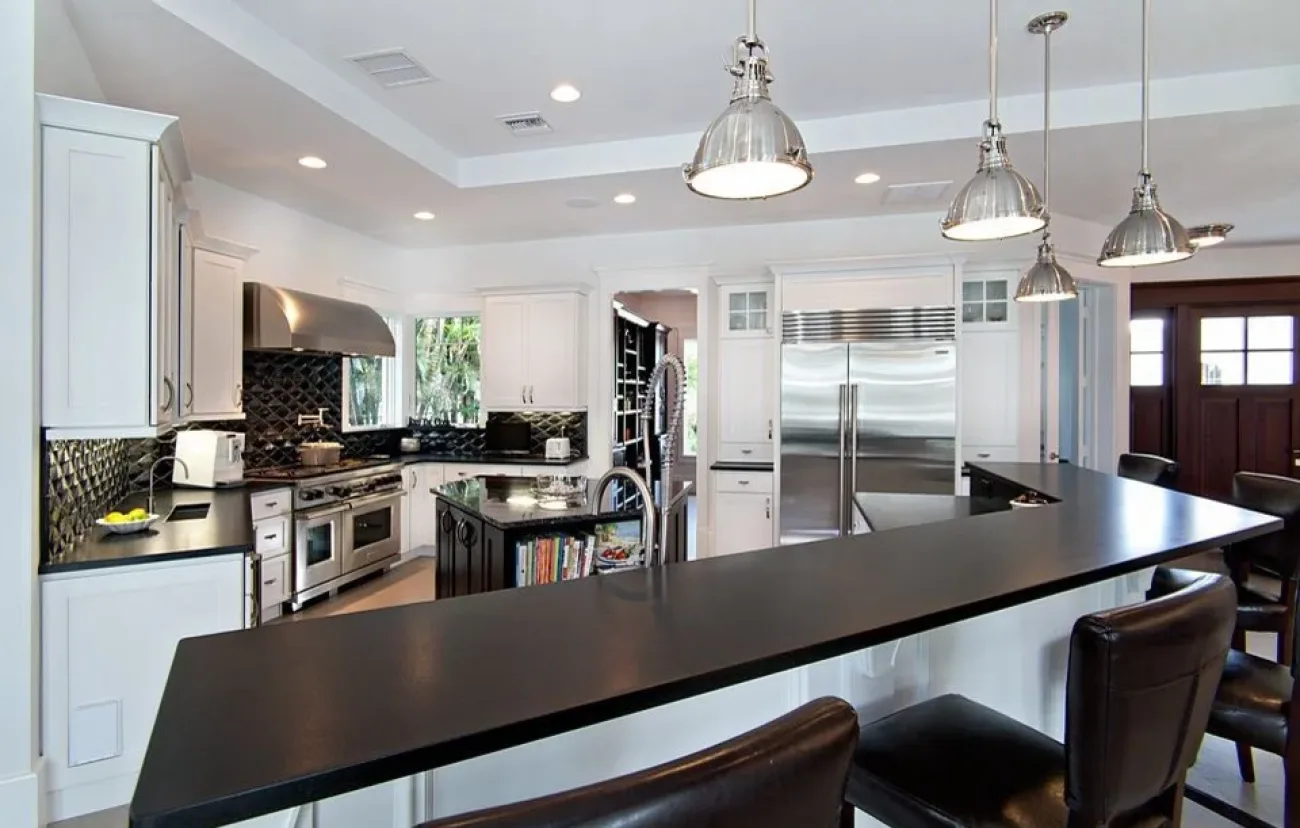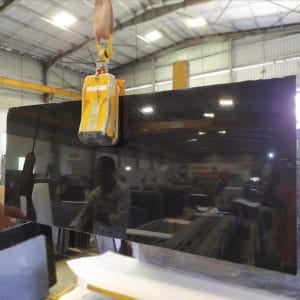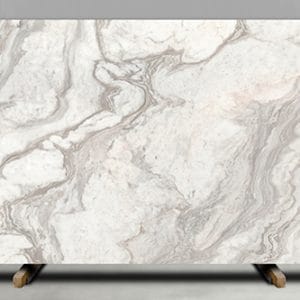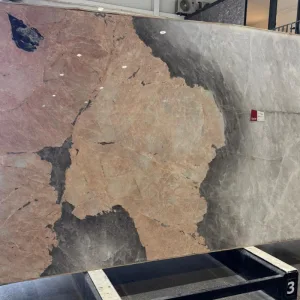When people speak about designing a house that lasts for generations, they frequently think of sturdy foundations, weather resistant roofing, and dependable structure. But there is one feature that silently plays a major effect in how a house feels and functions over time. The choosing of stone for surfaces. And among all the natural stones out there, one name has a magnetic attraction. Black granite. It has a reputation for elegance, assertiveness, and most of all power. But the fundamental question that homeowners, designers, and builders keep asking is this. Just how durable is black granite in real world usage.
This is when the truth becomes exposed. It is not just about claiming it is powerful, but rather breaking down how it performs in the kitchen, in the bathroom, outdoors, and throughout the years of usage. If you are contemplating whether this deep rich stone is worth the expenditure, stay reading because you will discover answers that cut through the flashy showroom presentations and dive into what truly counts.
Understanding What Makes Black Granite Special
Granite itself is created over millions of years deep beneath the ground. It is an igneous rock, meaning it cooled slowly from liquid lava which gave it the coarse grained structure. Within granite, there are many varieties of hues and patterns. Black granite stands out due of its continuous black look. In instance, there is one kind that has become a design classic. Absolute black granite. The name fits because when polished it appears like pure midnight, generally with very little veining or variation.
The attraction is evident. It suits contemporary sleek interiors. It pairs with both light and dark cabinets. It delivers an immediate impression of richness without shouting for attention. But beyond its attractiveness, the true test rests in resilience. After all, countertops, floors, and wall cladding are not there only for show. They take continual usage, spills, scratches, temperature fluctuations, and occasionally even neglect.
Hardness and Scratch Resistance
One of the basic measurements of stone durability is hardness. Geologists utilize something called the Mohs scale of hardness, which grades minerals from one being soft like talc to 10 being diamond. Granite often falls between six and seven. That implies it is tougher than most household materials including steel.
For practical terms, this means when you lay down pots, pans, knives, or even drag a ceramic mug over the surface, you are highly unlikely to create scratches. Many homeowners even chop veggies directly on granite countertops. While it is usually advisable to use a cutting board to preserve your blades, the stone itself does not show indications of damage readily.
When compared to softer stones like marble, which is prone to etching and scratches, black granite comes off as a clear victor in scratch resistance.
Heat Resistance and Daily Kitchen Use
Durability also involves how the stone responds to temperature. In a busy kitchen, you may take a hot pot directly off the burner and set it down on the counter. With wood or laminate, that would create burns or even warping. Granite has the benefit of developing under great temperatures within the ground. As a consequence, it can handle unexpected high temperatures without breaking or burning.
Still, experts advocate utilizing trivets and hot pads not because the granite cannot withstand the heat, but because thermal shock from significant temperature variations may create stress over a very long time. But for everyday kitchen usage granite is nearly as heat safe as you can get.
Stain Resistance and Maintenance
One area where many homeowners become worried is discoloration. Coffee, alcohol, oils, or acidic foods may create scars on certain natural stones. Granite is less permeable than many stones, although it is still a natural substance. This implies it contains small holes that may absorb liquids if left sitting for lengthy durations.
The good news is black granite tends to have less apparent pores than lighter stones. When properly sealed, it resists stains exceptionally well. Sealing is a technique where a liquid sealer is poured and absorbed into the stone, closing those microscopic holes. Most vendors suggest sealing once a year, while many homeowners report spending years without resealing and yet having no difficulties.
Daily care is straightforward. Warm water, light soap, and a delicate cloth are plenty to keep it clean. There is no need for harsh chemicals or abrasive cleaning. That little maintenance contributes to its endurance since you are not damaging the surface with harsh cleansers over time.
Resistance to Chipping and Cracking
Granite is durable, yet like any stone it is not unbreakable. The edges and corners of countertops are the most susceptible places. If you drop a large cast iron pan straight on the edge, there is a potential it may chip. But such incidents are infrequent and typically straightforward to fix by an expert.
In terms of cracking, granite slabs are put with support. As long as they are adequately supported, the chance of cracking is negligible. Problems normally emerge only when the installation is substandard or when the slab is strained in unexpected ways during transit. Once put in a house, granite stays firm for decades without symptoms of fracture.
Long Term Durability in Real Homes
Numbers and lab tests are one thing. But what about real life houses that have had granite countertops for twenty or thirty years. The reality is these stones still look quite nice. Many homeowners that renovate kitchens after decades sometimes maintain the granite slabs and only re polish them. The stone itself does not wear down readily.
Even in commercial settings like restaurants, hotel lobbies, or heavy traffic floors, granite continues to be a material of choice because it can tolerate years of steady usage without seeming weary. The polish could degrade somewhat after heavy usage, but a skilled polishing can put it back to its previous luster. That is a durability you just can not get with synthetic equivalents.
Outdoor Durability
Another facet of durability is weather resistance. Can granite be used outside where it encounters sun, rain, snow, and temperature changes. The answer is yes. Granite is utilized in building facades, monuments, and even gravestones exactly because it stands up against the weather. Black granite in particular holds its color quite well. While some stones fade under UV light, black granite holds its depth for years.
It also handles freeze thaw cycles better than many stones, which is why it has been utilized as external cladding in cold climes. That durability outside is a good predictor of how it would operate inside under considerably friendlier circumstances.
The Psychological Aspect of Durability
There is one additional layer of durability that sometimes goes overlooked. The sense of assurance homeowners experience when they realize their surface can take practically anything. With granite, customers are not constantly worrying about stains, scratches, or heat marks. That peace of mind contributes to the practical power of the material. It enables homeowners to truly live in their kitchens and bathrooms instead of tiptoeing around vulnerable surfaces.
Comparing Granite to Alternatives
When considering stone surfaces, customers typically balance granite versus quartz, marble, soapstone, or even manufactured surfaces. Marble looks wonderful yet it etches and stains readily. Soapstone has a soft warm charm but scratches fairly quickly. Quartz is manufactured to be non porous, however it does not have the same inherent heat resistance and in some instances may discolor with UV exposure.
Granite mixes natural beauty with functionality. Especially in black tones, it gives a classic appeal that matches with practically any style. Its endurance is not just marketing rhetoric but demonstrated by decades of usage in both homes and public settings.
Final Verdict on Durability
So how durable is black granite actually. The reality is it is one of the most dependable solutions for surfaces that encounter everyday usage. It resists scratches better than softer stones. It holds up to heat significantly better than synthetic fabrics. With good sealing it resists stains. And it has a proven reputation of enduring for decades with very little upkeep.
Durability does not imply unbreakable, but it does mean reliable. For homeowners who desire a surface that can preserve its beauty while enduring real life demands, black granite is not merely a safe option. It is one of the best long term investments in design and function.
About BBV Impex
BBV Impex is a leading marble and granite exporter & supplier known for its honesty, consistency, and deep understanding of natural stones. We source our materials directly from trusted quarries and deliver carefully processed slabs and blocks to clients worldwide. Our team believes in long-term relationships built on trust, quality, and commitment. From classic marbles to durable granites, every stone we supply carries the mark of fine craftsmanship and natural beauty. At BBV Impex, we don’t just trade stones — we help builders, architects, and homeowners bring their design ideas to life.






